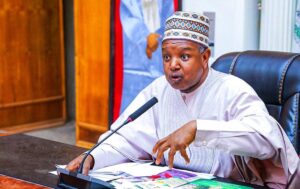The Federal Government says ongoing reforms in Nigeria’s electricity market are focused on stabilising revenue, improving supply reliability, and upgrading key infrastructure to support industrial growth.
Minister of Power, Adebayo Adelabu, disclosed this at the 31st Nigerian Economic Summit in Abuja, noting that the reforms align with President Bola Tinubu’s Renewed Hope Agenda for a sustainable and investor-friendly power sector.
He said the introduction of cost-reflective tariffs for select consumers has strengthened market liquidity and improved supply reliability, boosting sector revenues by 70 per cent to ₦1.7 trillion in 2024, with projections surpassing ₦2 trillion in 2025.
Adelabu added that President Tinubu has approved a ₦4 trillion bond to clear verified debts owed to generation companies and gas suppliers, while a targeted subsidy scheme is being designed to shield vulnerable households.
According to him, under Phase Zero of the Presidential Power Initiative, transmission capacity has been enhanced by more than 700MW, while Phase One—currently being executed by Siemens Energy and other partners—will deliver an additional 7,000MW.
He said national generation capacity rose to 5,300MW in 2024, up from 4,200MW in 2023, following the rehabilitation of Niger Delta Power Plants and the integration of the 700MW Zungeru Hydropower Plant into the national grid.
Adelabu reaffirmed that these reforms are aimed at delivering a predictable and commercially sustainable electricity supply that will power Nigeria’s industrial expansion and job creation drive.





